BEACON OF FREEDOM
DEMIURGE / PERKINS + WILL
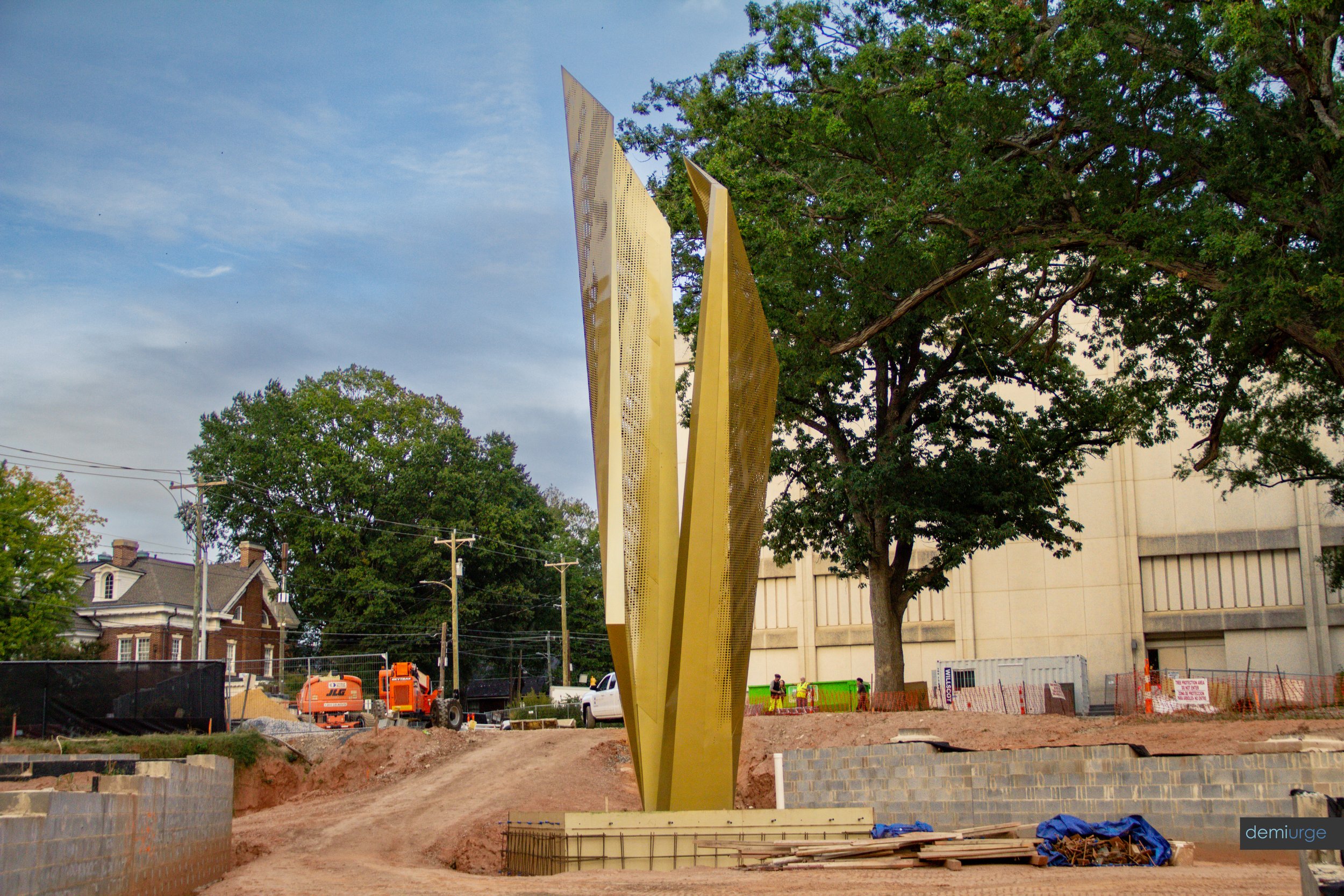
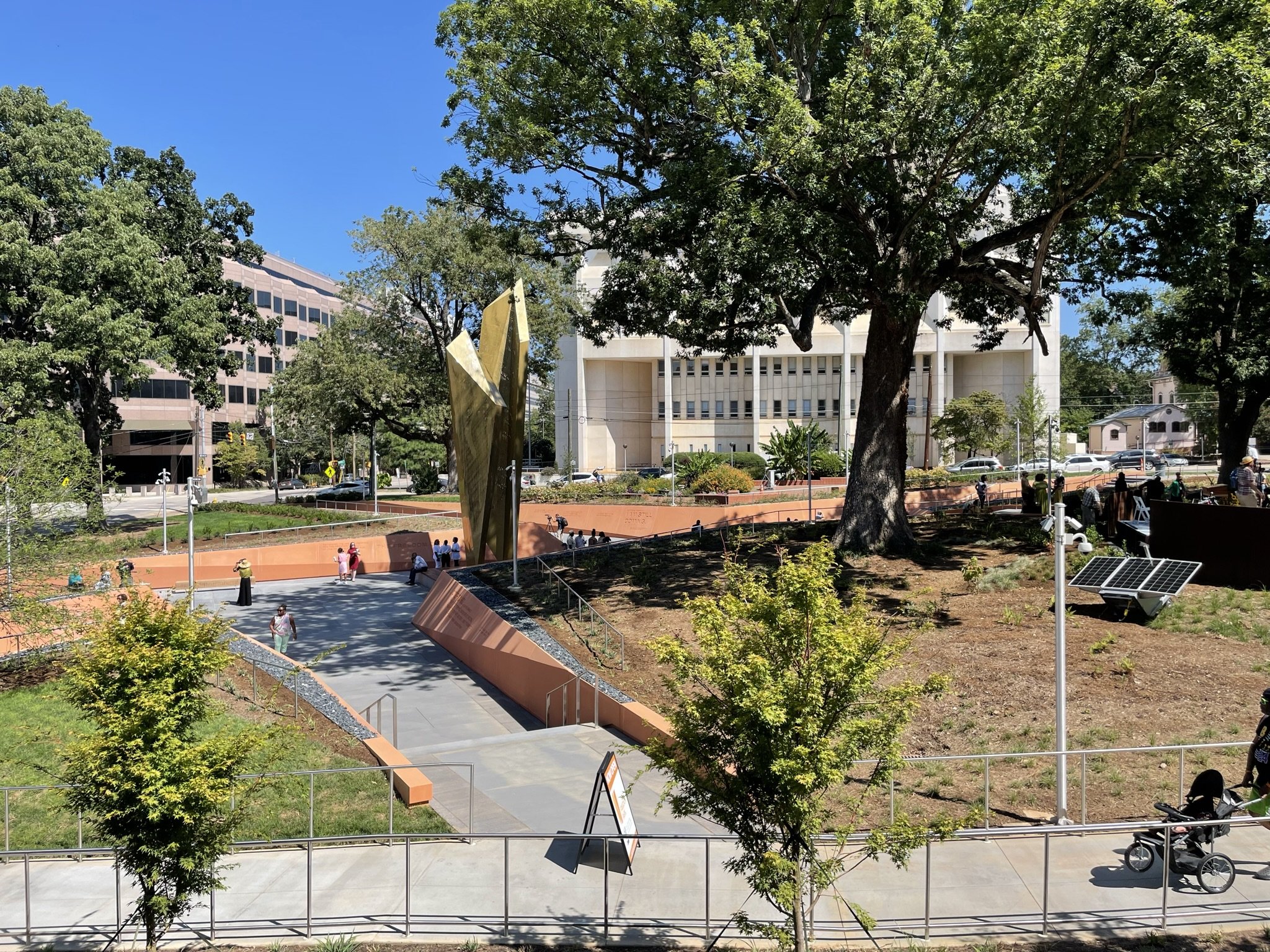
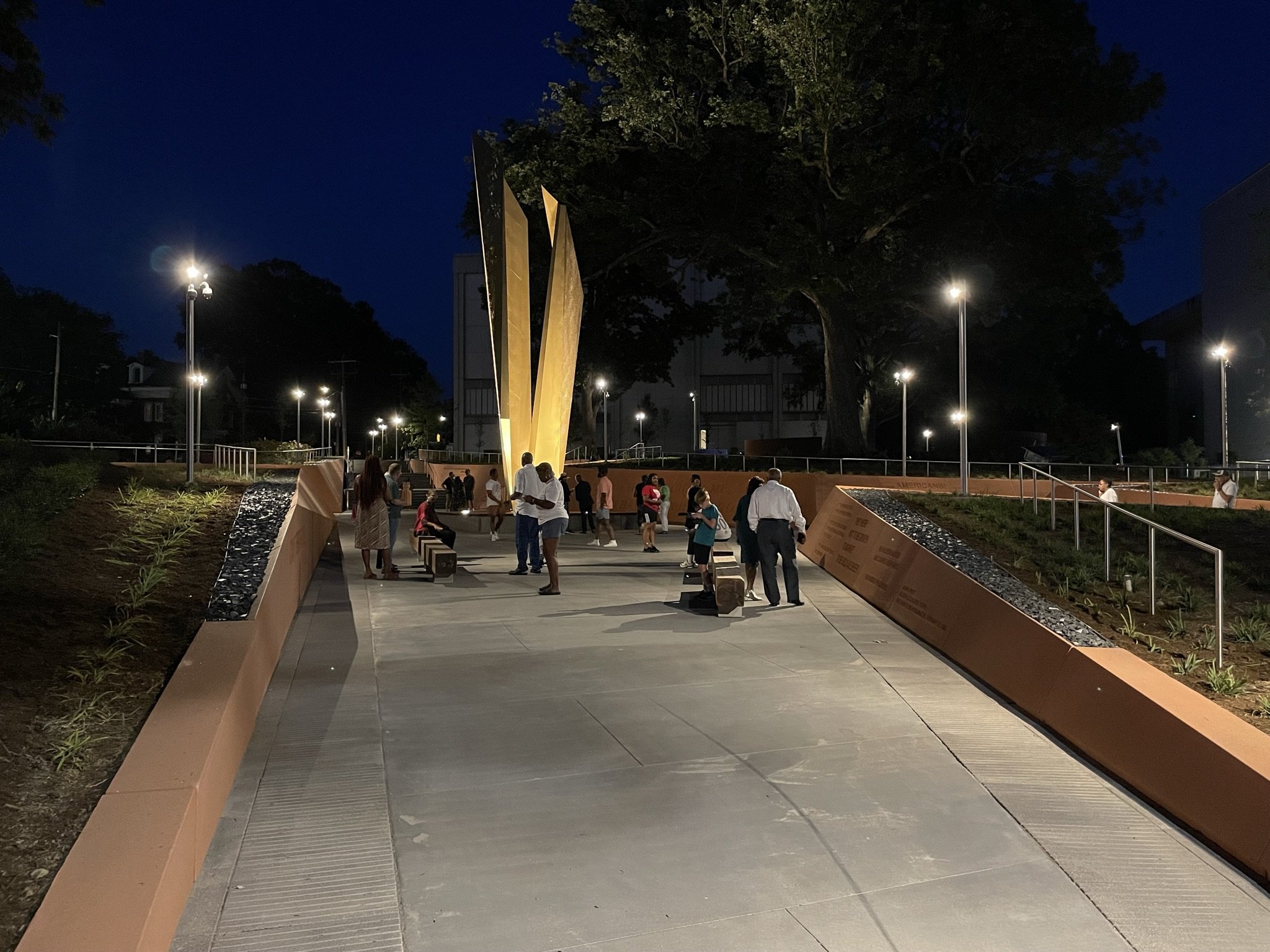
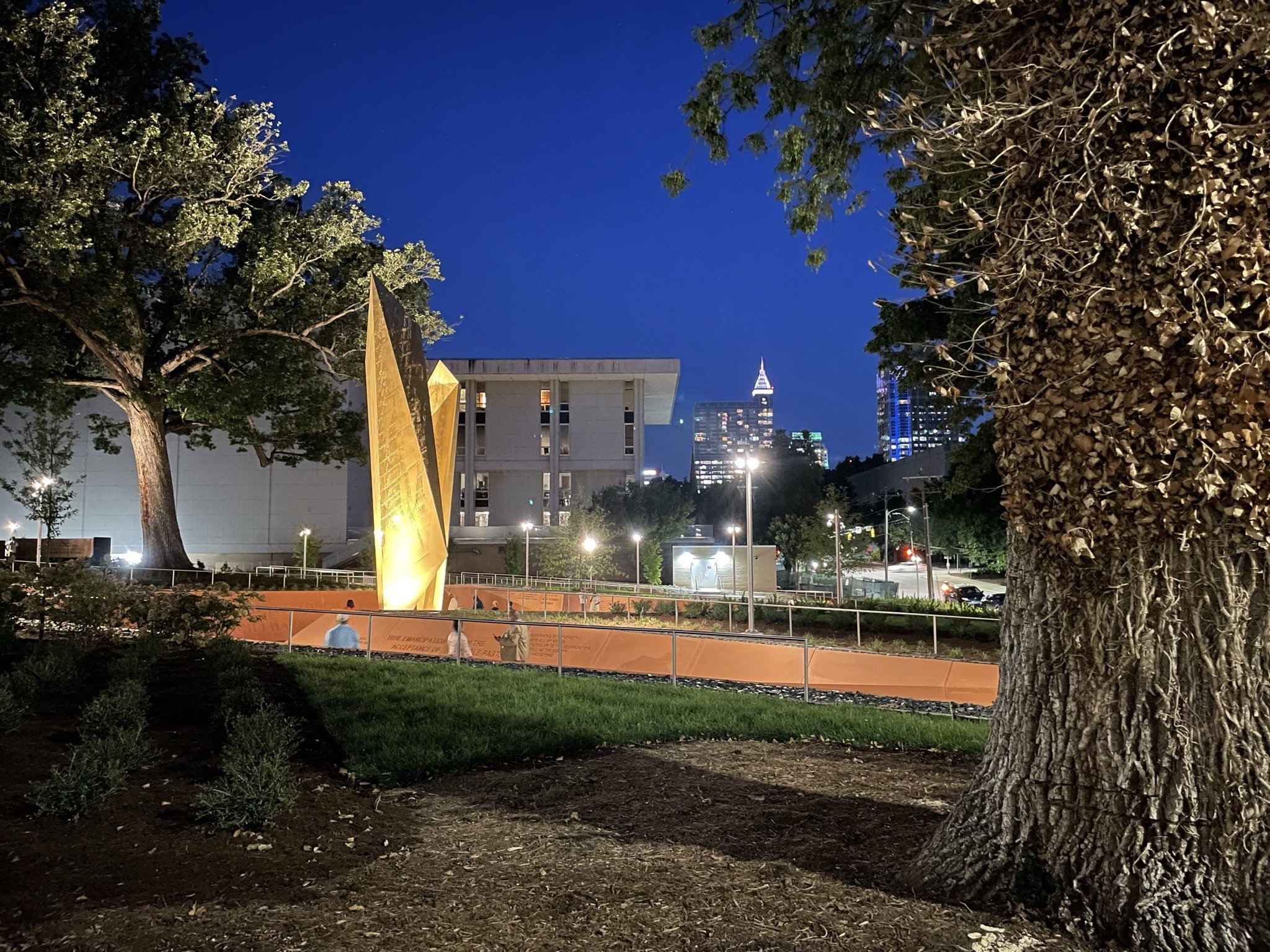
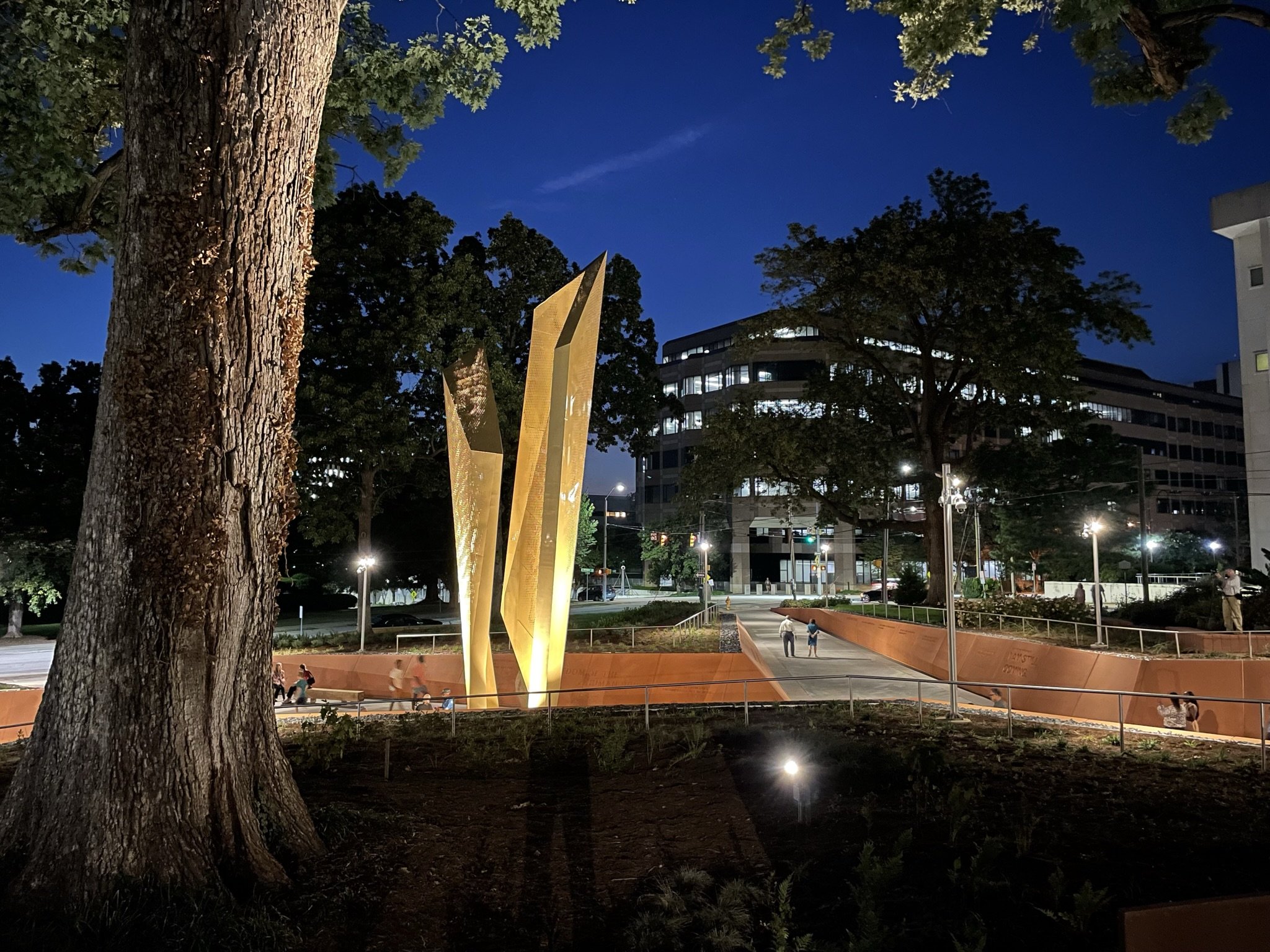
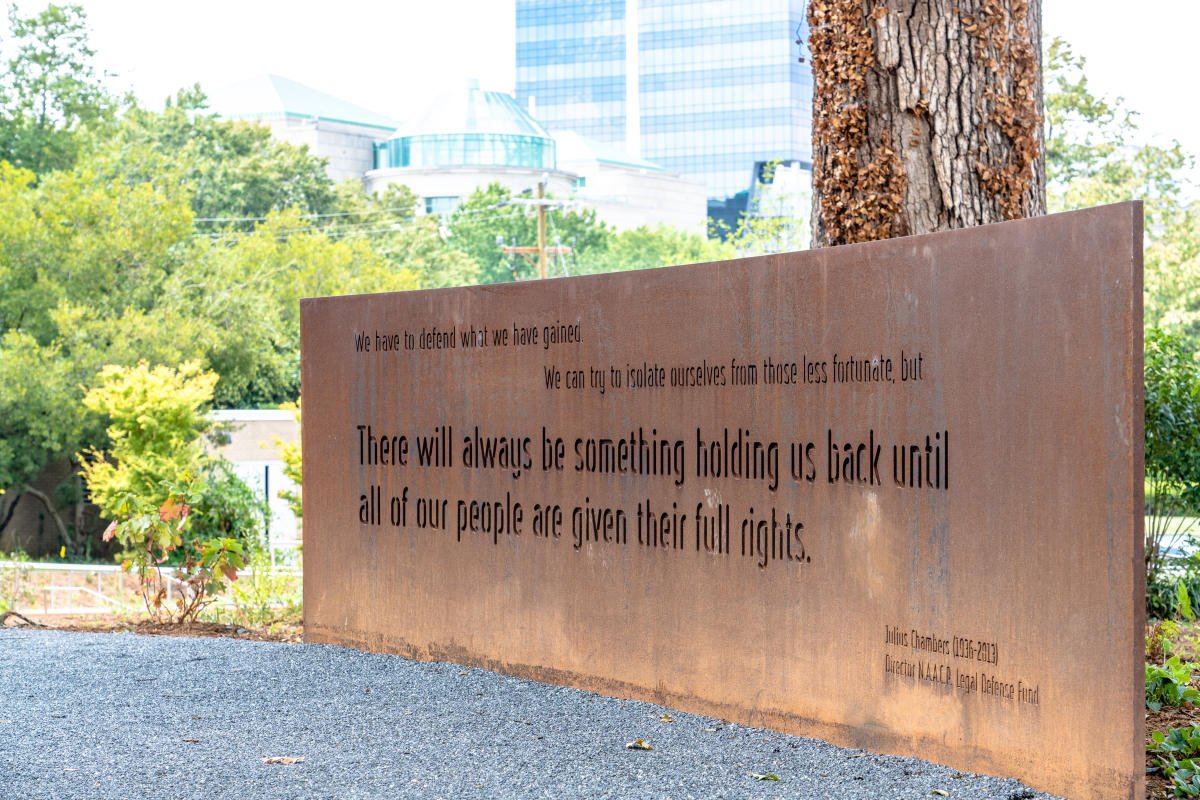
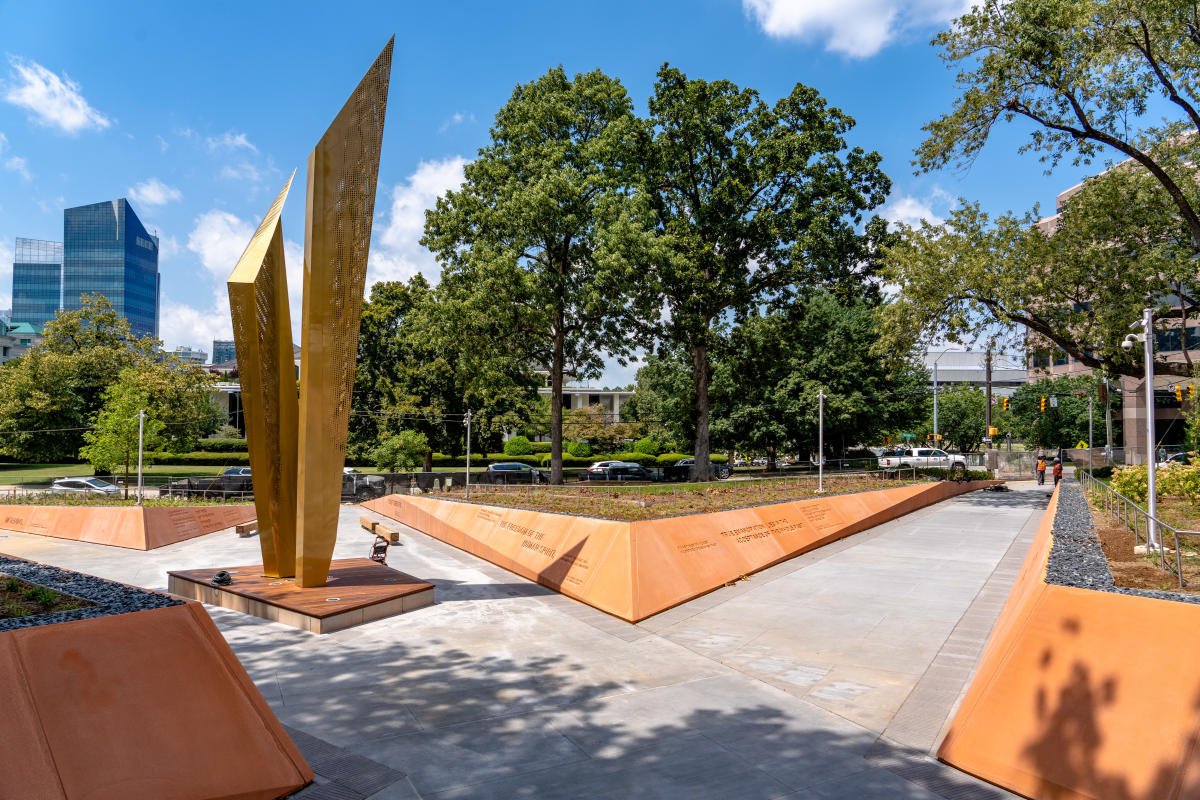
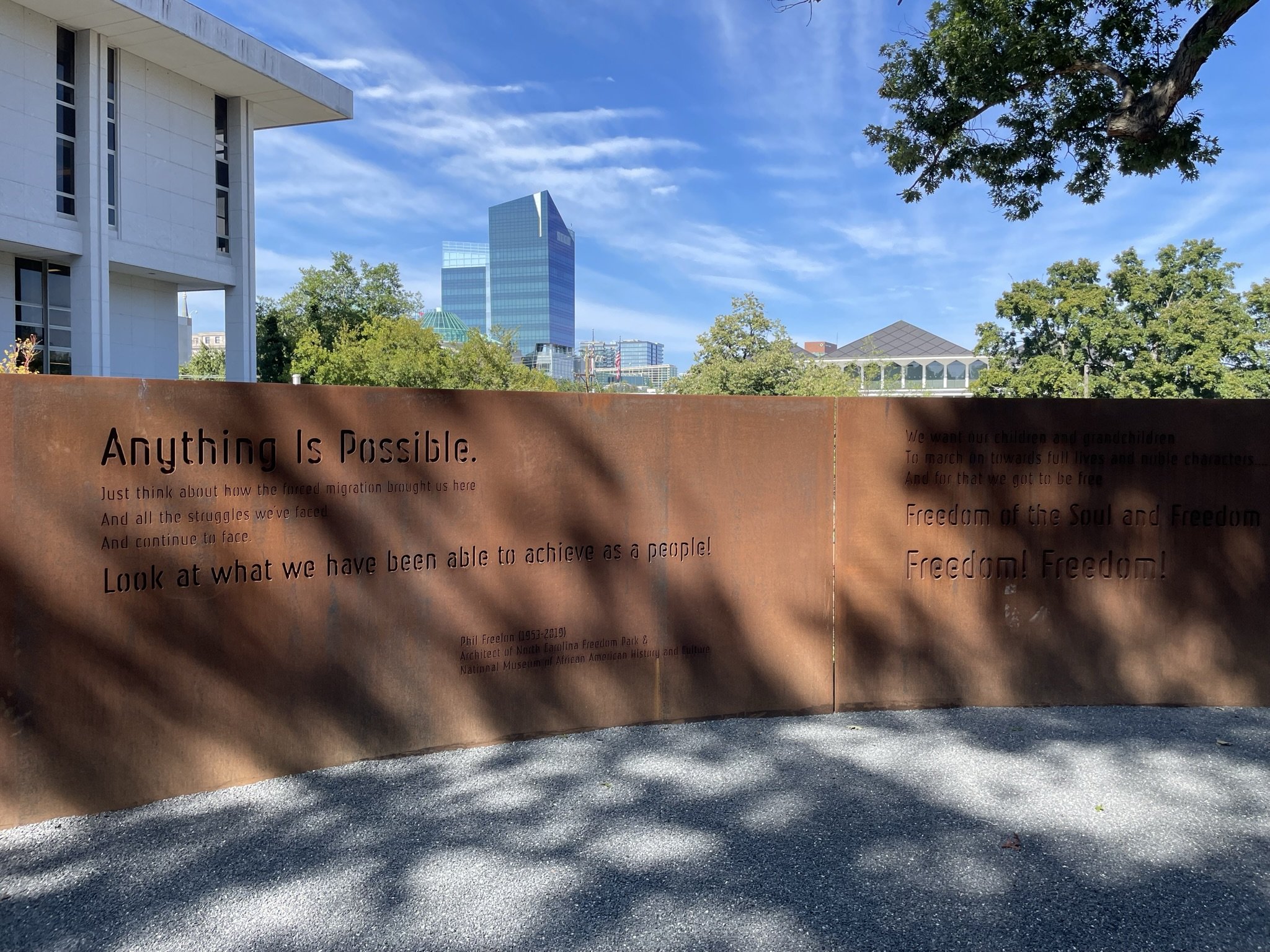
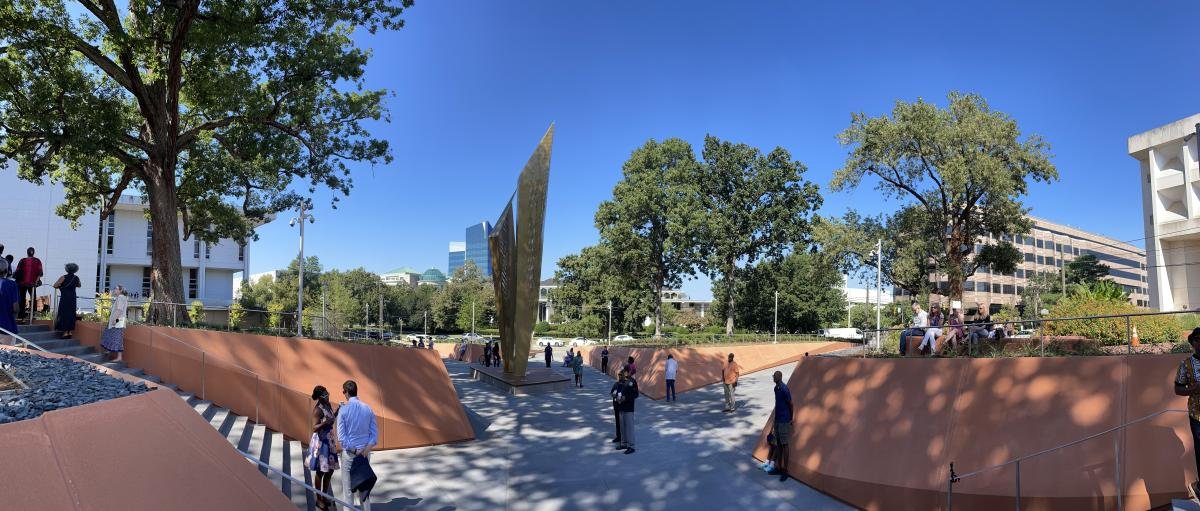
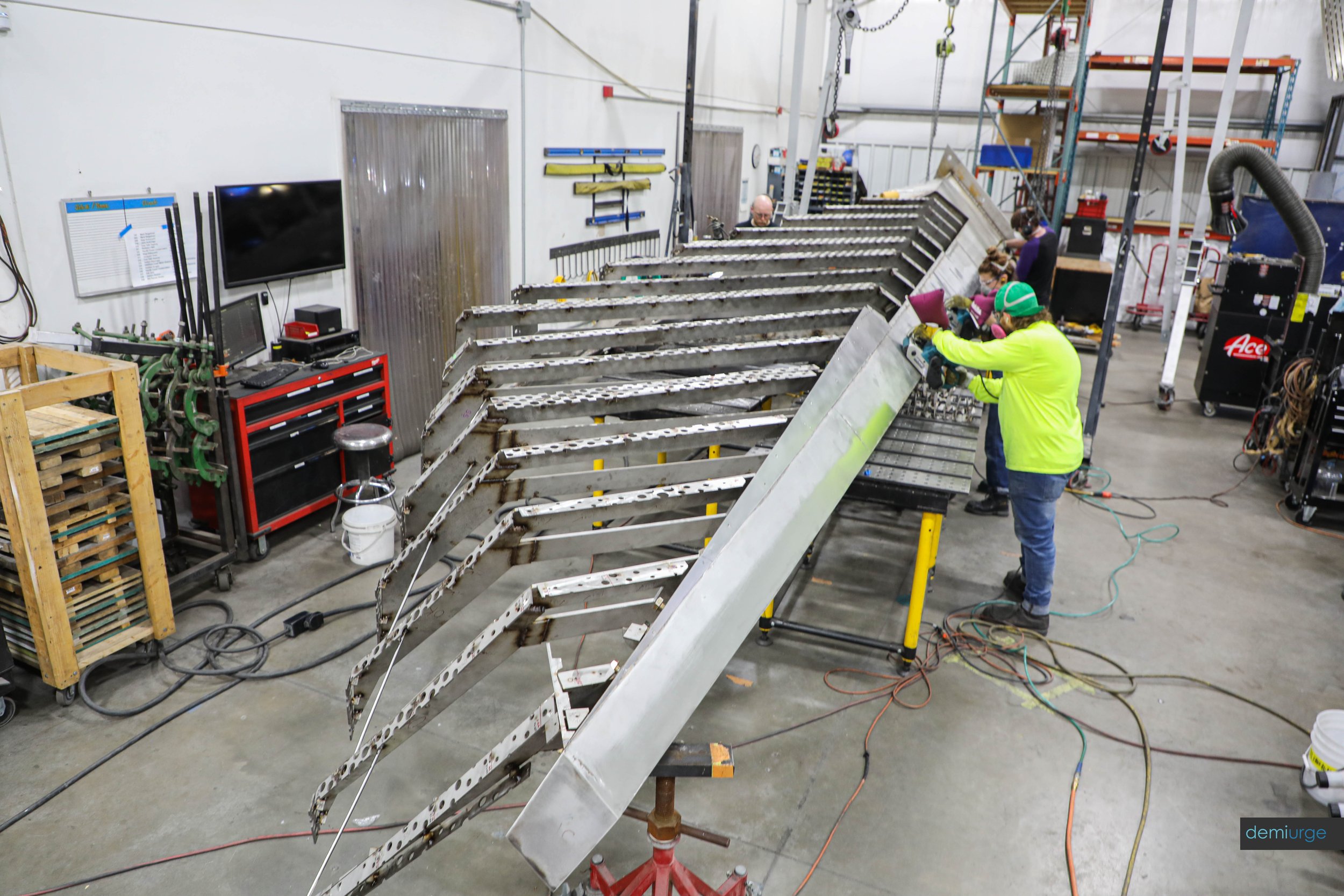
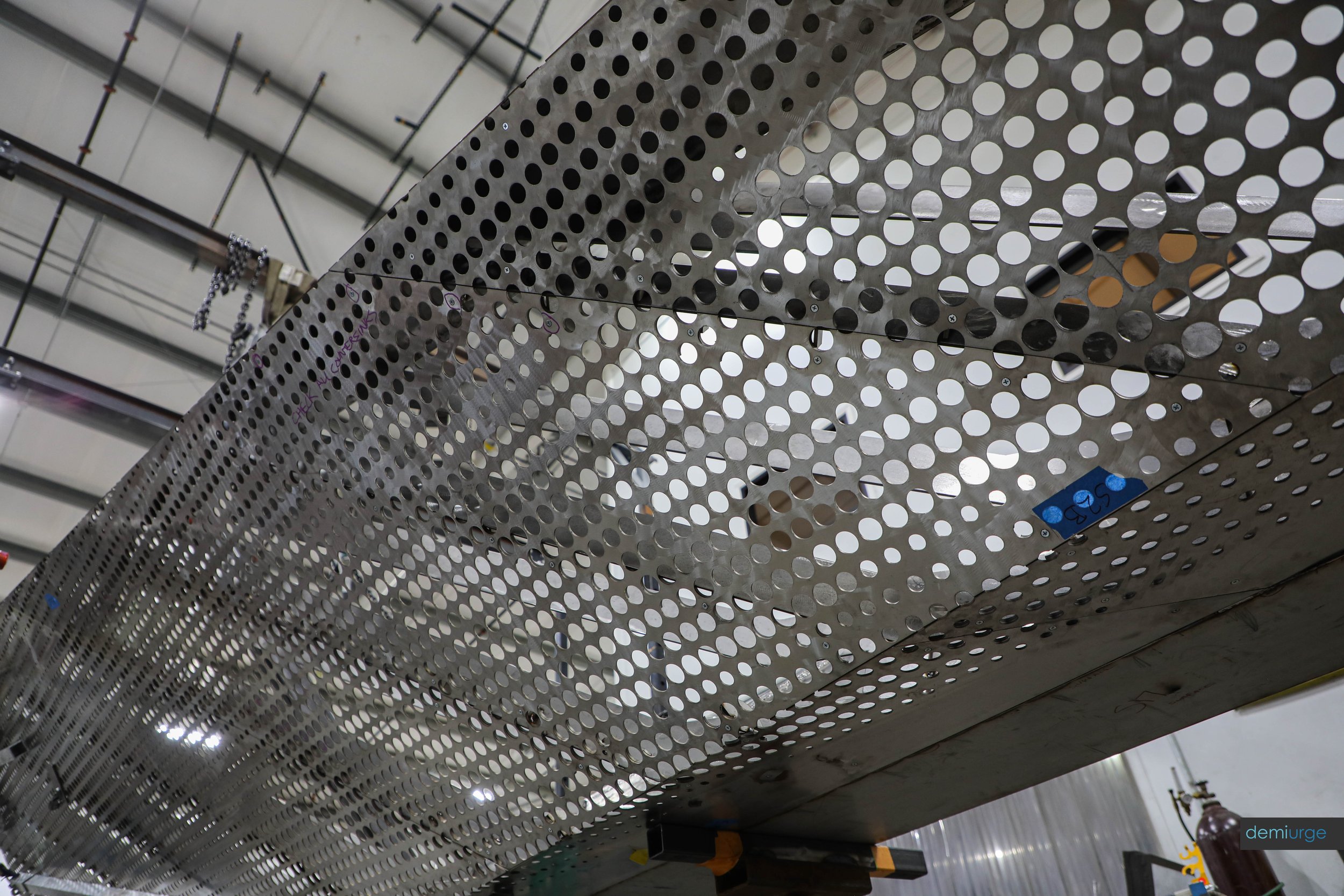
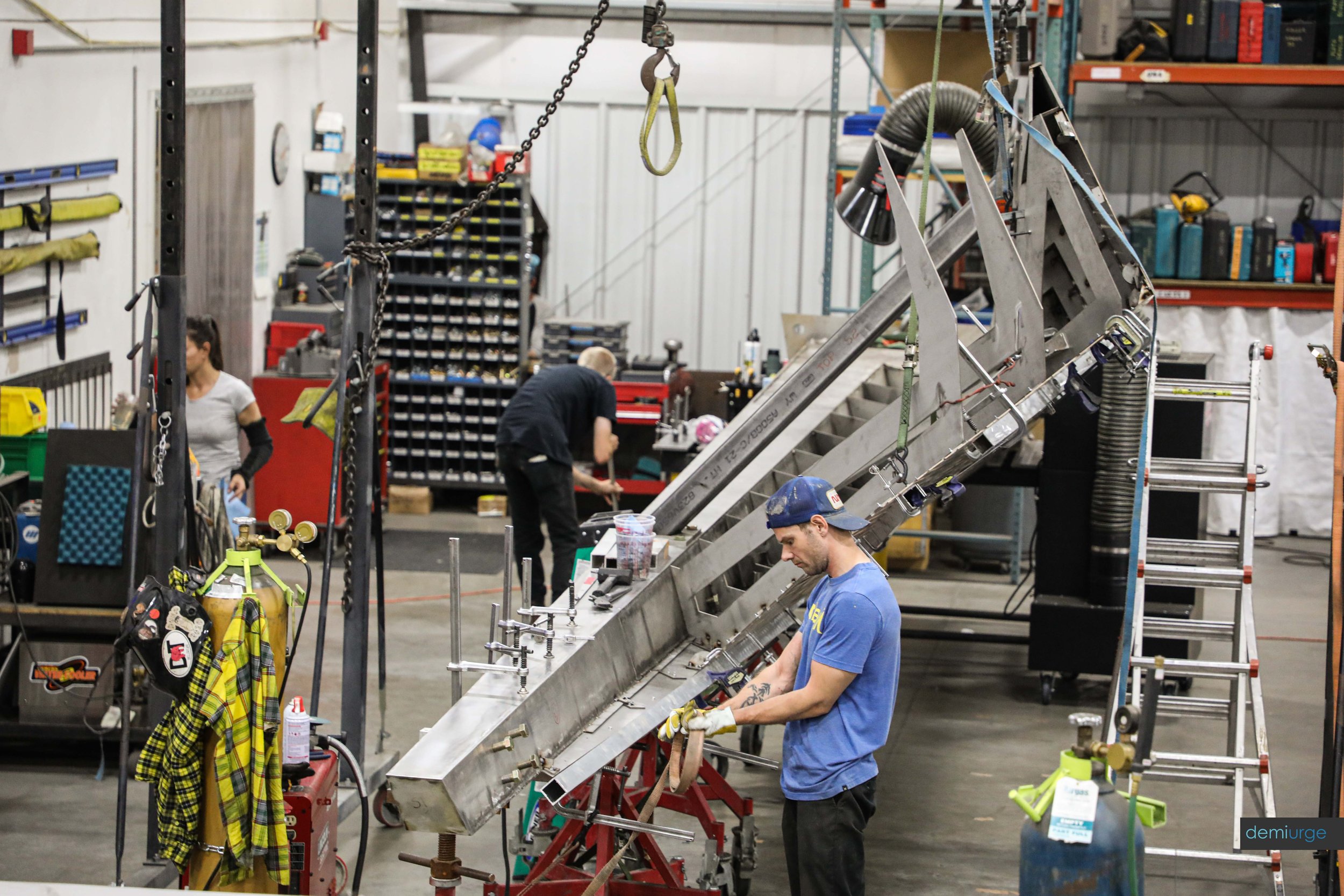
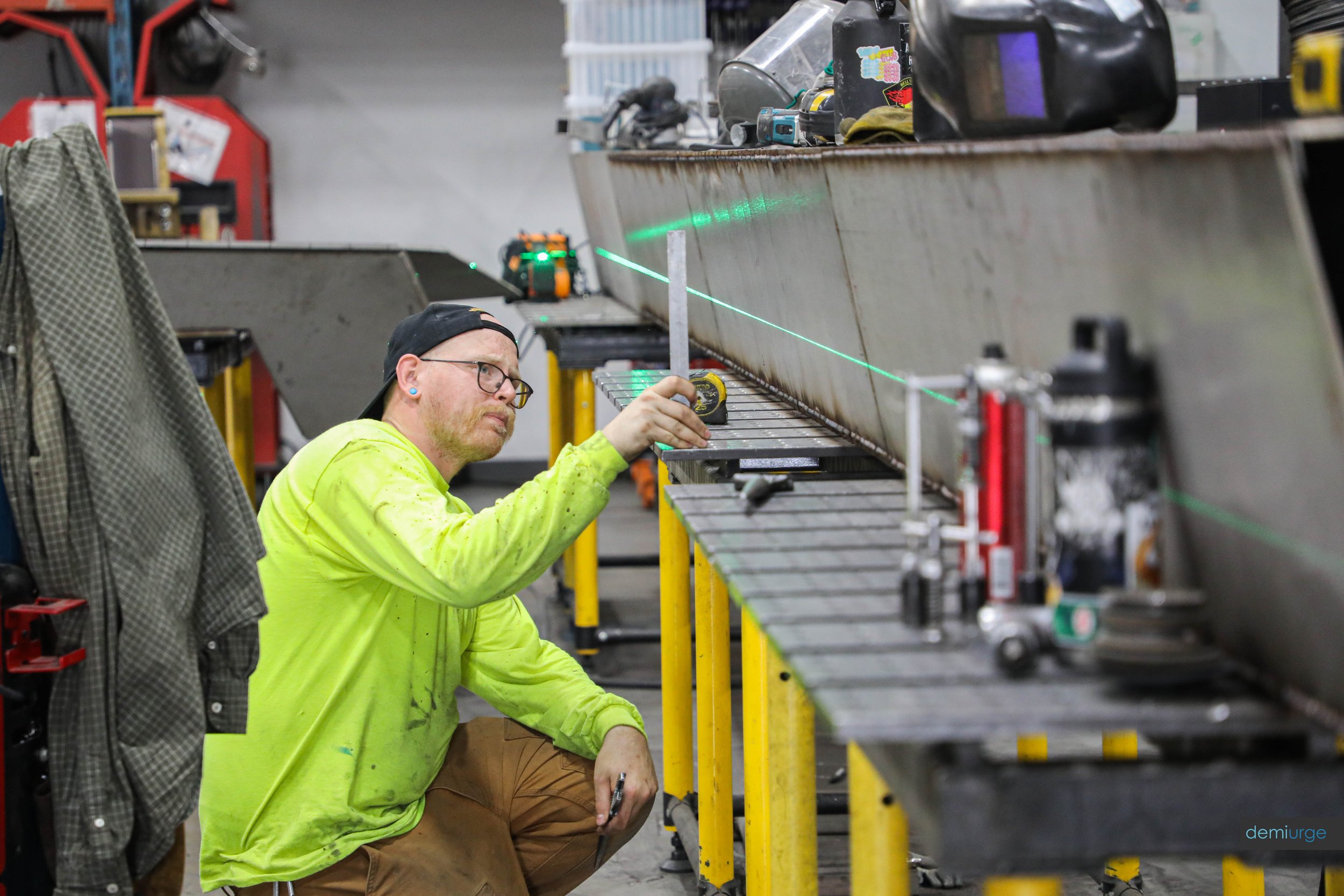
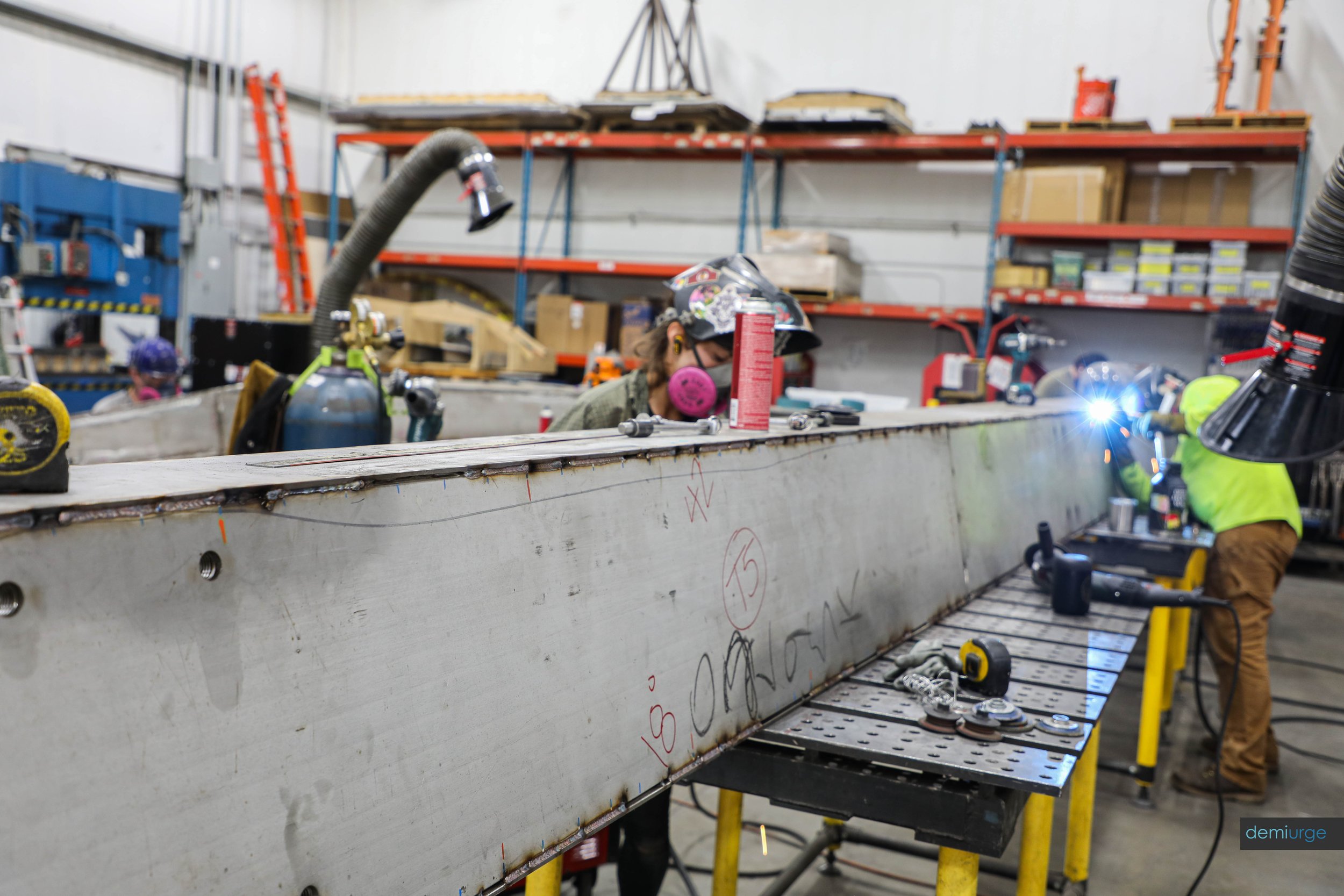

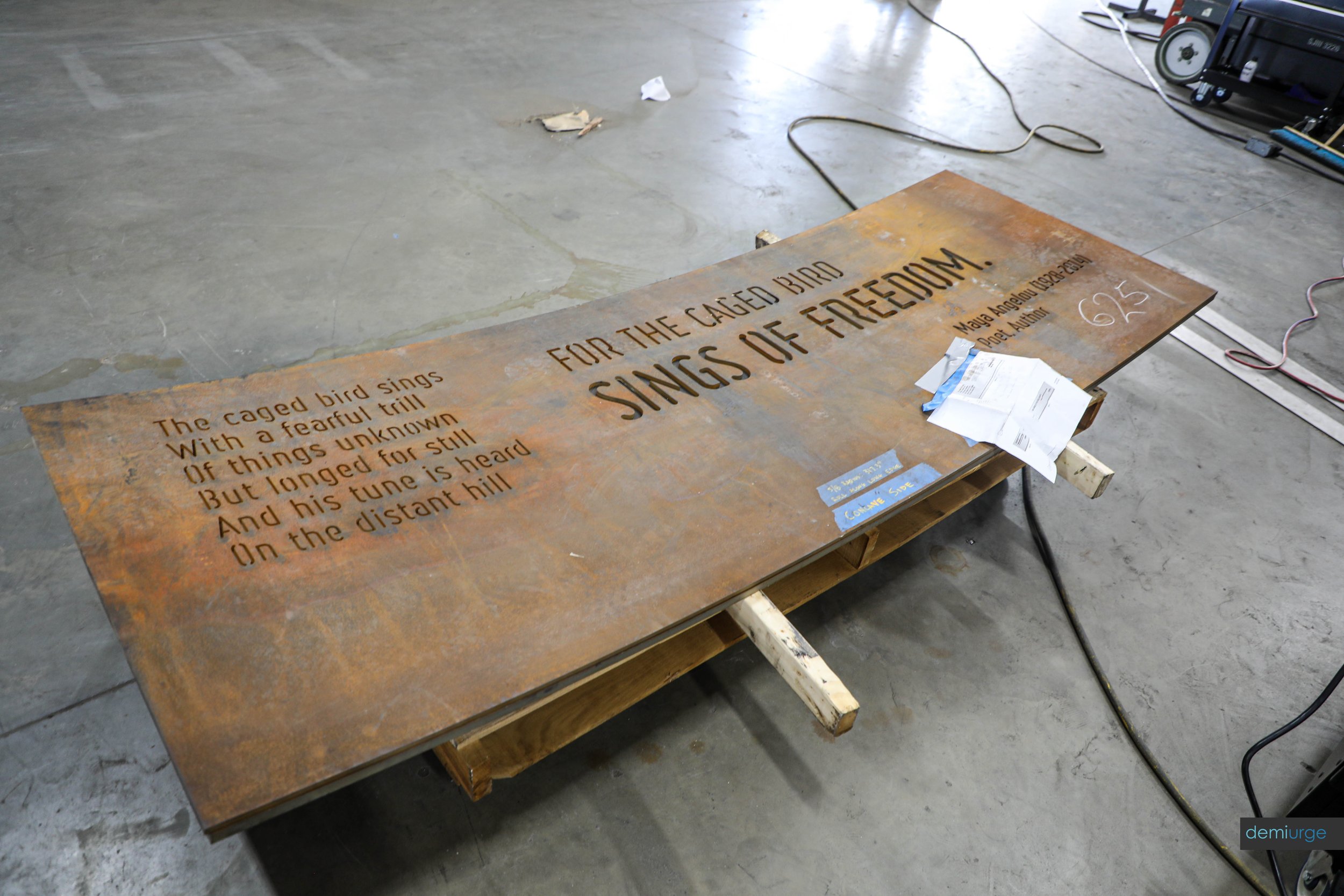
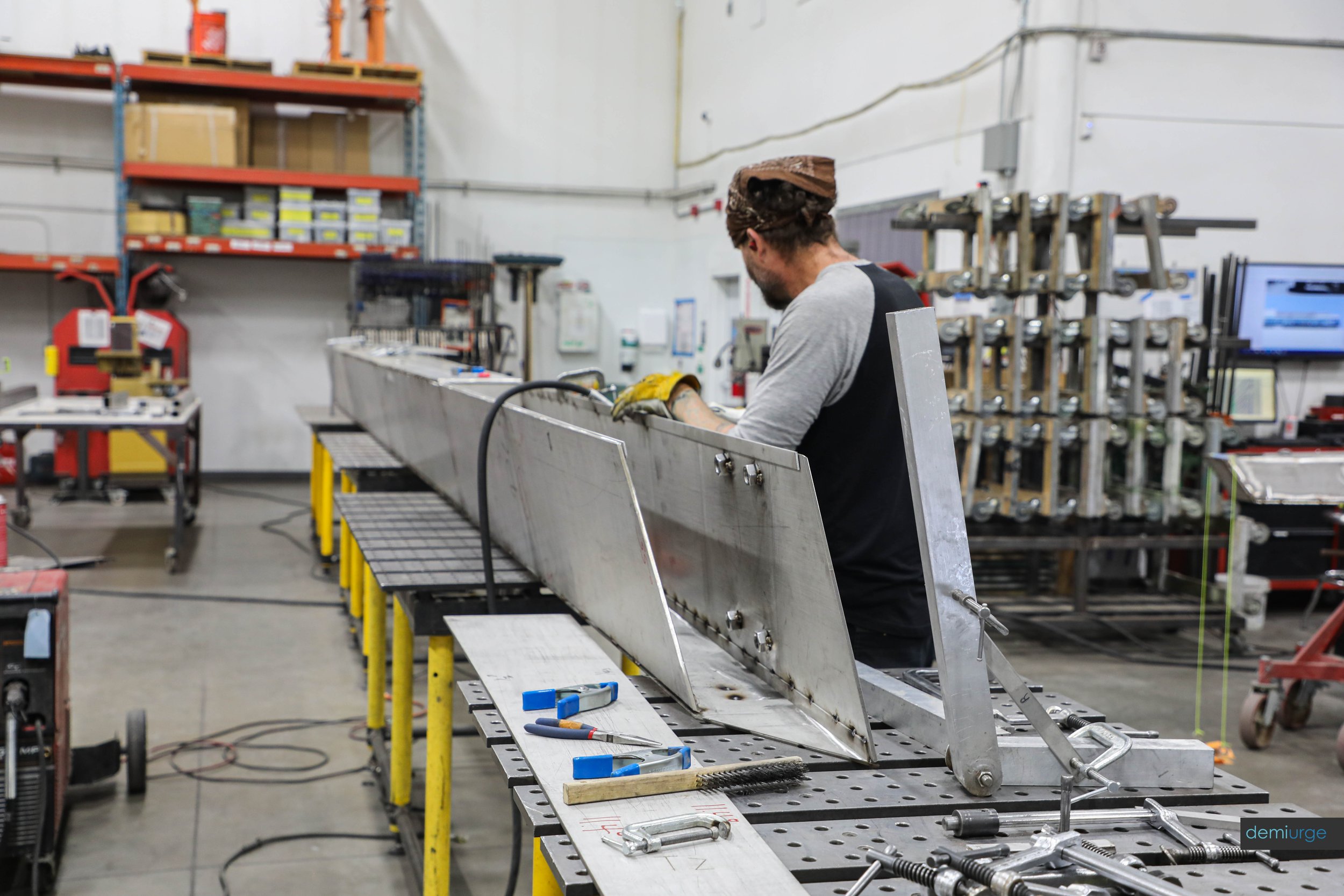
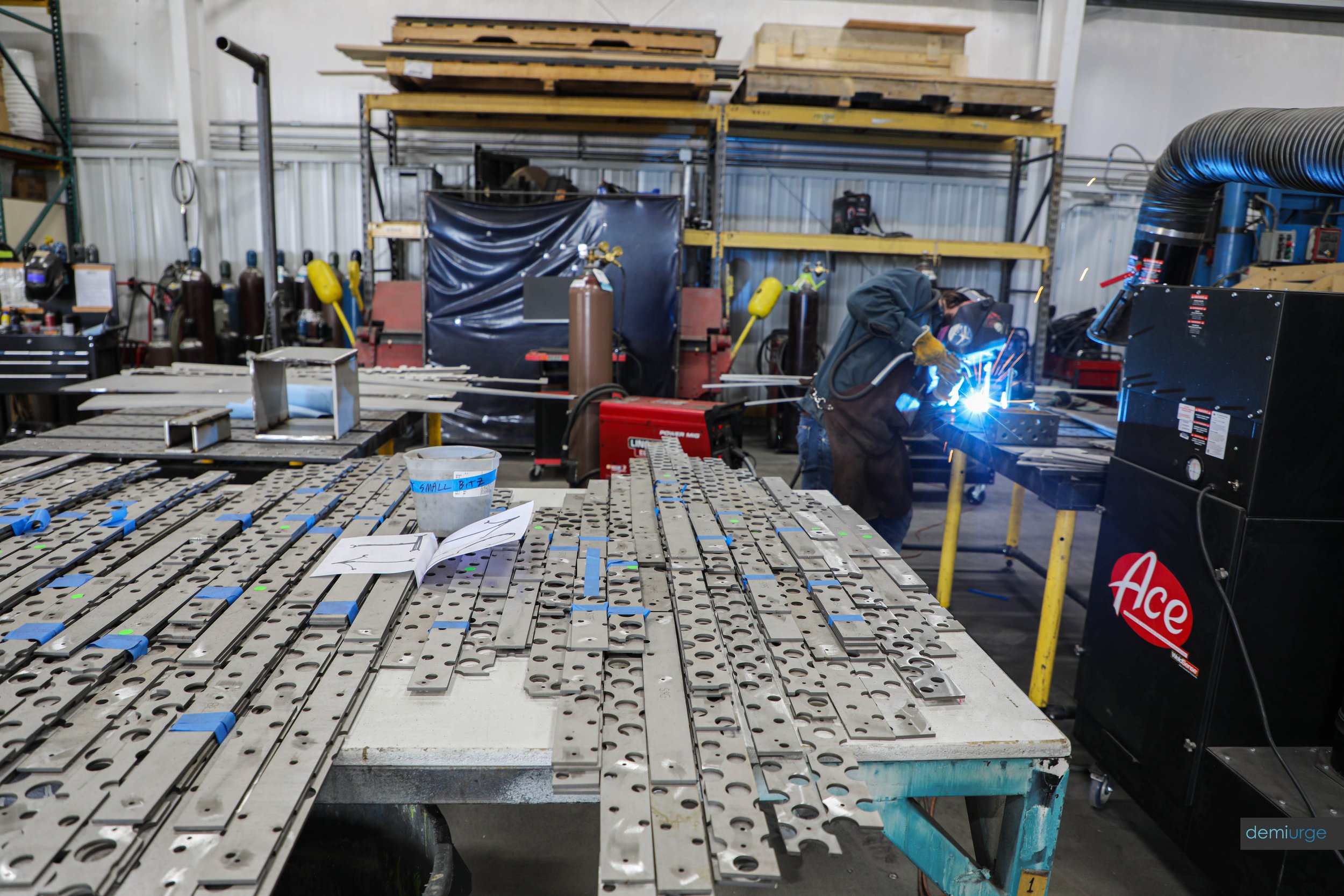
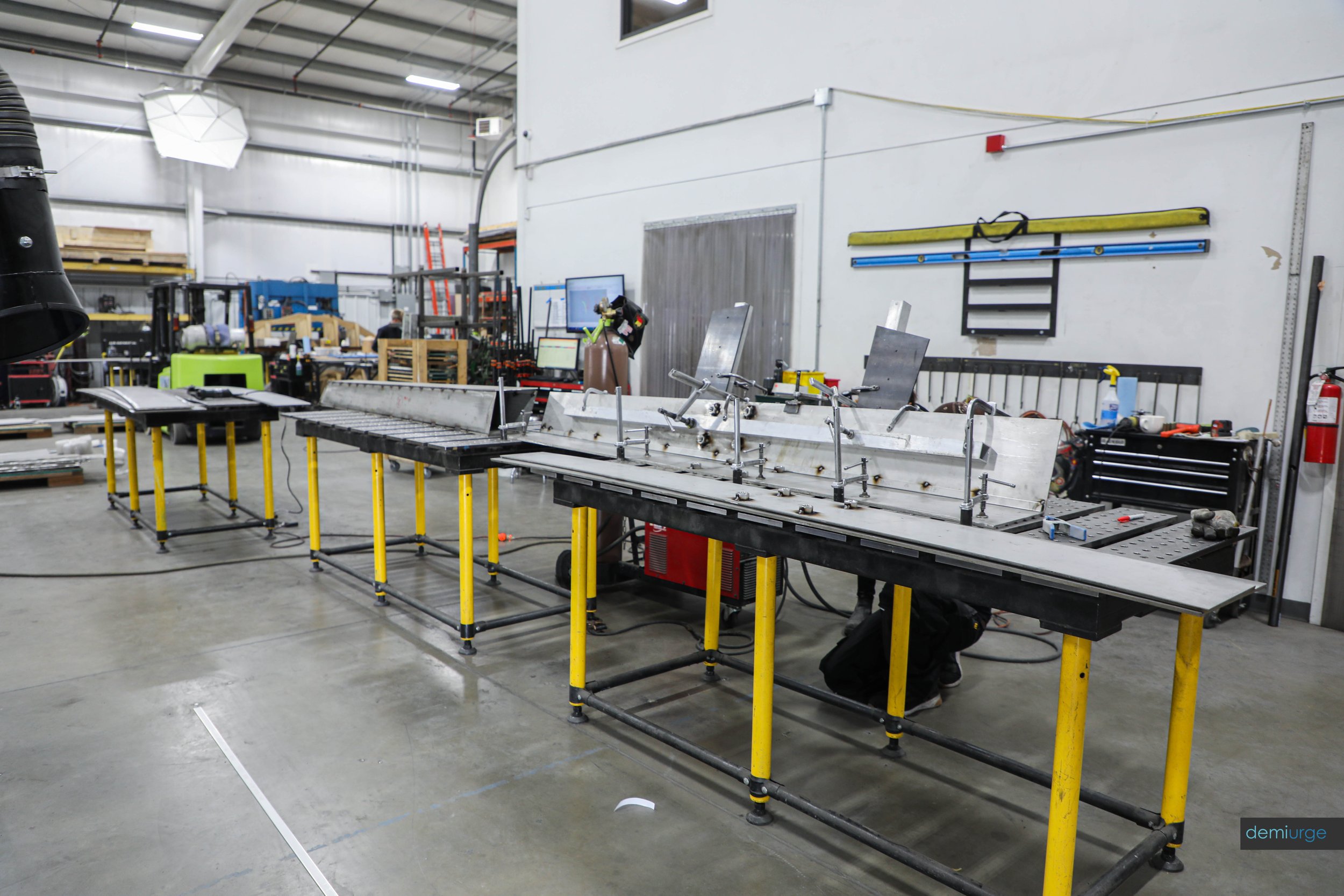
PROJECT PROFILE:
Architect: Phil Freelon
Title: Beacon of Freedom
Materials: Stainless Steel, Industrial Paint Coating
Fabrication + Installation: Demiurge
Engineering: Yetiweurks
Location: 218 N Wilmington St. Raleigh, NC
Freedom Park, is a historic 1-acre green space nestled in the heart of downtown Raleigh, North Carolina. With deep reverence for the unyielding spirit of the African American struggle for freedom, this park stands as a timeless tribute to the universal ideals of liberty, resilience, and equality.
Anchored by the Beacon of Freedom, the park features 20 “Voices of Freedom” inscribed along its walkways – powerful words of African Americans throughout North Carolina history. As the first park in North Carolina dedicated to honoring the African American struggle for freedom, it stands as a beacon of hope and a reminder that the ideals of perseverance, equality, and freedom are universal aspirations that can unite us all.
About the Architect:
Preeminent architect Phil Freelon designs community-centered spaces that make beautiful architectural design accessible to everyone. Freelon was born in Philadelphia, Pennsylvania, but first called North Carolina home as an undergraduate, when he transferred from Hampton University to North Carolina State University. He went on to earn a Masters in Architecture from MIT and, after a few years away from his adopted home state, returned to Durham to work for O’Brien Atkins. He called North Carolina home ever since. Freelon later founded his own firm, the Freelon Group, which merged with Perkins+Will in 2014.
The collaboration between the North Carolina Freedom Park board and Perkins+Will stands as a source of great pride. Phil Freelon's design achievements encompass a wide spectrum, ranging from cultural and civic projects to academic ventures, all for some of the most esteemed cultural institutions in the United States. A noteworthy highlight of Freelon's illustrious career is leading the design team responsible for the celebrated $500 million Smithsonian National Museum of African American History and Culture on the iconic National Mall in Washington DC. His portfolio also boasts gems like the National Center for Civil Rights in Atlanta, the Museum of the African Diaspora in San Francisco, Emancipation Park in Houston, as well as several notable library projects for the DC Public Library System and the Durham County Human Services Complex.
Phil Freelon's distinguished achievements extend to being an appointee of the National Commission of Fine Arts during the Obama administration. He is also honored as a Fellow of the American Institute of Architects (FAIA) and as a recipient of the prestigious Thomas Jefferson Award for Public Architecture.
Freelon's visionary and successful portfolio underscores North Carolina's ascent as a national leader in acknowledging the complexities of contemporary discussions on race and heritage through the medium of a public park. The final design masterfully encapsulates the theme of African American "roots" in history and culture, along with the often uncelebrated contributions of countless individuals forming the vital "branches" of our society. This dynamic interpretation of a public park intertwines education, functionality, and celebration seamlessly, offering spaces for reflection and congregation alike. The park's centerpiece, the iconic "Beacon of Freedom," captivates the imaginations of visitors.
On July 9, 2019, Freelon passed away in Durham, North Carolina at the age of 66. His legacy lives on in the numerous public spaces around the country he helped to create and the students he mentored. His work also extends well beyond the field of architecture to include fine art photography, which has been exhibited widely in art galleries and museums.
PRESS:
North Carolina unveils its first park honoring African American history
Now Open in Raleigh, N.C.: North Carolina Freedom Park
Freedom Park opens in downtown Raleigh to honor NC African-American heritage
After 20 years, North Carolina Freedom Park opens to the public
